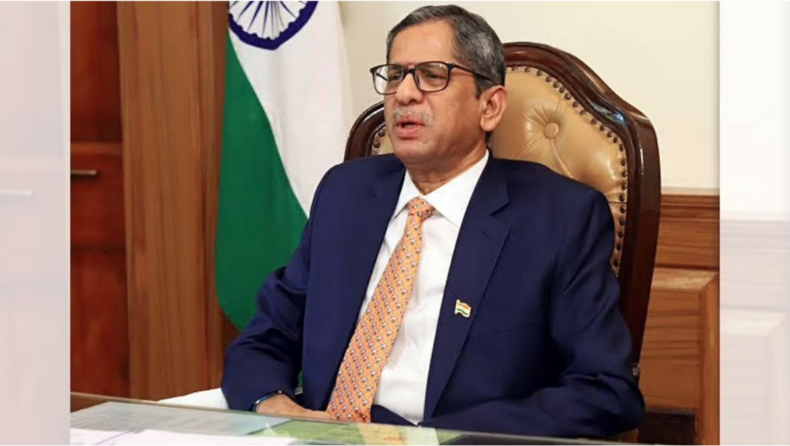Speaking at an event on Saturday CJI Ramana said urgent steps need to be taken to address the issue of a high number of undertrial prisoners. 80% of prisoners are undertrial, who are overcrowding the jails and also affecting the country’s criminal justice system.

Describing the jails as a ‘black box’, CJI questioned the procedure that led to prolonged incarceration without any trial. For many years, there have been problems with overcrowding in jails, securing bail, and the sheer volume of court cases that are waiting in India. These factors severely disadvantage the underprivileged and marginalized members of society and prevent them from obtaining justice.
Speaking during the 18th All India Legal Services Authority’s opening session, CJI Ramana emphasized the need for a comprehensive plan of action to improve the effectiveness of the nation’s criminal justice system. According to him, efforts should be made to modernize the current system, sensitize the police, and implement an alternative conflict settlement system for petty civil disputes and crimes.
The two-day event is organized by National Legal Services Authority (NALSA).
The event also marked the inauguration of ePrisons initiatives, smartphone app, and NALSA LACMS web portal by N V Ramana. The beneficiary of legal aid, he claimed, would benefit greatly from the New Legal Aid cases management web and mobile app because they would be using the same platform as the legal aid lawyer. This app will improve case management efficiency while also fostering accountability and openness in how the case is handled. He described the E-prisons gateway as a move toward efficiency and openness that prioritizes the needs of the prisoner. According to him, an inmate may easily access all pertinent information about them, including information about their detention and any ongoing legal proceedings.
Initiatives such as e-Mulakat and e-Parole were also launched so that families of the inmates can remain in touch with them.
No contemporary democracy can exist without upholding the Rule of Law and no rule of law can survive without the concept of equality. The very idea of modern India was built on the promise of delivering social, economic, and political justice to all, said CJI.
The supreme court and high court judges are present for the two-day conference. Kiren Rijiju, the minister of law, Ashok Gehlot, the chief minister of Rajasthan, and others were also present during the opening ceremony.













